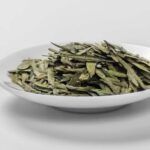Although living with a horse can be a joyful experience, it also comes with the duty of caring for the animal’s needs all of your life. Horses require love, devotion, and care, which can be demonstrated by stroking, riding, grooming, and horse health supplements. The horse can live an additional year or more with proper care. Keep in mind the following general horse care suggestions:

- Regular Supply of Food and Water
The majority of the time, they require supplemental grain feedings twice a day in addition to daily pasture or hay consumption. A horse of typical size will consume around eight gallons of liquid and 20 pounds of food daily and at least. Horses need to graze or nibble frequently throughout the day rather than eat one or two meals daily since their stomachs are relatively small and their digestive processes are surprisingly delicate.
- Provide a Lot of Roughage
Many pleasure and trail horses may get by on high-quality hay or pasture instead of grains. Grain can be added if hay is lacking, but roughage should always make up the bulk of a horse’s caloric infusion.
Roughage is what horses are pointed to eat and their digestive systems are built to process the nutrients in grassy stalks. Roughage should comprise one to two percent of a horse’s daily diet.
Horses that spend a considerable time in stalls don’t graze considerably, but their natural feeding practices can be simulated by leaving grass out in front of them all day. They can eat it for a while, stop and rest for a while, and then return to it, ensuring that some roughage is always flowing through their bodies.
- Give Grain Often and in Little Amounts
If you’re feeding your horse grain, distribute it over several smaller meals rather than one huge one. For owners’ convenience, most horses receive grain twice a day. Give the horse a lot of grain, and think about giving it another feeding at lunch if you want it to stay healthy. Frequent, small meals can be utilized to feed horses because they allow them to digest better.
When a horse is fed much food, the meal is not as efficiently digested. Each horse has unique requirements. When determining how much to eat, consider their size and the amount of work they accomplish.
Take into account how much hay or pasture the horse receives: Horses that spend most of the day grazing on healthy grass rarely if ever, require hay. Whether they are indoors or outside, horses who don’t receive enough turnout or aren’t on decent pasture will require extra hay.
Use hay to augment pasture feeding throughout times of drought or winter. Depending on the amount of available pasture, when the grass is thick and lush, it can totally replace or drastically reduce hay rations.
- Modify Meal and Feed Routines Gradually
Make adjustments to the horse’s ration size or feed type gradually whenever possible.
If the volume of feed is changing, if feasible, increase or decrease each meal gradually over a period of many weeks. One way to switch the feed is to replace 25% of the old feed every two days with the new feed, resulting in the horse consuming 100% of the new feed after six days.
- Measure the Food Properly and Feed it Consistently
Use a kitchen or postal scale or the scale at the nearby feed store to begin weighing the horse’s feed. Determine the weight of the horse’s regular ration and use a coffee can, scoop, or another suitable measuring device to measure that amount at feeding time.
A horse weighing 1,000 pounds that just eats hay often consumes fifteen to twenty pounds of hay each day. The bulk of grass is delivered in the form of flakes, although the quantity of hay delivered in each flake varies greatly depending on the type of hay and the size of the flakes. Use a bathroom scale to check the weight of the hay bales you feed, and then only give the horse the amount of hay he requires.
Final Words:
Thus, the above-mentioned are things to follow to keep your horse healthier. Give your horse health supplements, as it is important and plays a vital role in maintaining horse health. Providing nutritious feeds, love, care and relaxation will keep your horse healthier forever.




